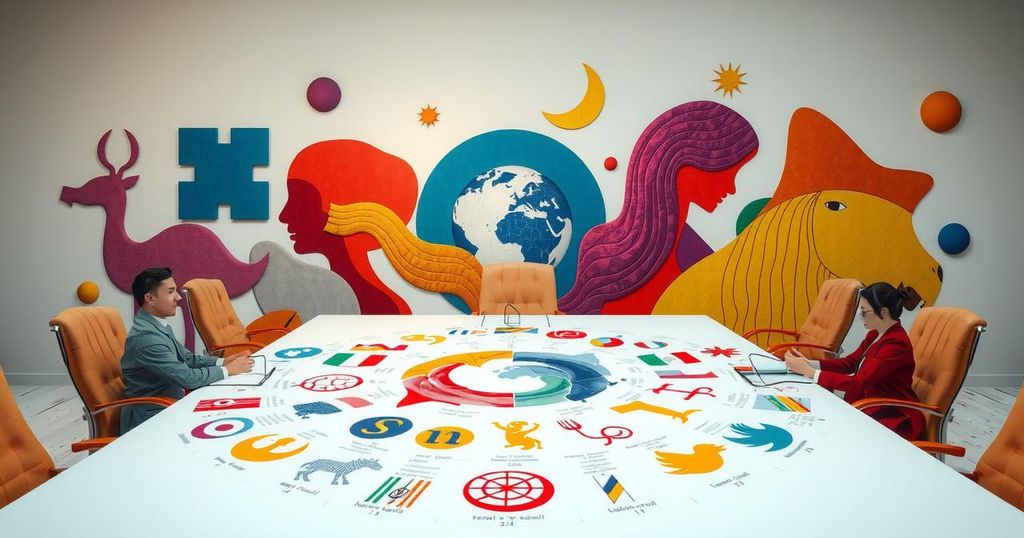Syria’s new leaders plan a national dialogue to map out the country’s future, promising only limited inclusivity by inviting select political opponents. Challenges remain as the Kurdish militia is excluded, and skepticism surrounds President Ahmed al-Sharaa’s intentions. Meanwhile, improved relations with foreign governments and the lifting of some sanctions reflect cautious optimism for Syria’s democratic trajectory.
Syria’s newly appointed leadership intends to facilitate a “national dialogue” aimed at determining the nation’s future, including participation from select political adversaries. Although this initiative represents a promising step forward, significant challenges remain, evidenced by the exclusion of the prominent Kurdish militia and the absence of other groups who cited inadequate notice for the meetings. Positive developments include the European Union lifting some energy and transport sanctions to foster Syria’s democratic progress and a modest return of Syrian Jews, reflecting growing confidence in government protection for minorities.
President Ahmed al-Sharaa has vowed to uphold inclusivity and the eventual introduction of elections, yet skepticism persists among Western officials regarding his true intentions, given his past affiliations with Hay’at Tahrir al-Sham. An official from the Biden administration remarked that he could either be a”great actor” or a pragmatic strategist seeking relief from sanctions while masking his extremist past. Despite this, al-Sharaa has garnered considerable popularity within Syria and is becoming an integral part of regional politics, as indicated by his invitation to the Arab League summit in Egypt.
The success of the new Syrian administration hinges on its ability to maintain balance between central governance and the demands of various factions. Scholar Rahaf Aldoughli noted that managing the current unity among the former rebel factions that helped displace Assad poses a formidable challenge for post-war Syria. The complexities are intensified by foreign influences, with nations such as Russia, the UAE, and U.S.-backed forces holding sway in various regions, while Israel seeks increased influence beyond the Golan Heights. The new leadership views liberating Syria from foreign power influence as crucial for a more hopeful future and a clear break from its turbulent past.
In summary, the Syrian government’s approach to fostering political inclusivity through national dialogue signifies a potential shift towards a more democratic landscape. However, the exclusion of key groups, coupled with skepticism about leadership intentions, presents significant obstacles. The success of the new administration may ultimately depend on navigating factional tensions and reducing foreign influence in the region.
Original Source: www.semafor.com






